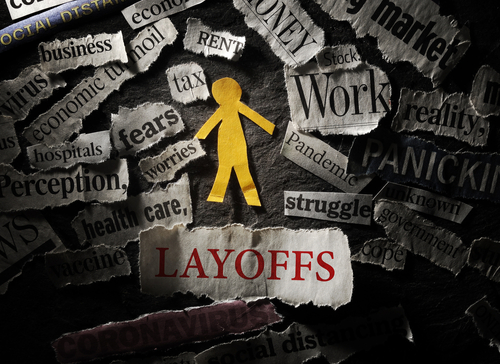It’s been a stressful time for U.S. workers, with significant layoffs being announced at high profile tech companies including Twitter, Meta, and Amazon. According to experts, losing a job is not only one of the most emotionally traumatic experiences a person can go through, but also affects those who are not laid off in downsizing companies.
As we move toward 2023, mental health remains a top priority. According to McKinsey, the threat to employee wellbeing is intensifying with 60% of the global workforce reporting at least one mental health challenge, including symptoms of anxiety, depression, or burnout.
“Company and HR leaders need to find solutions that address the mental health challenges their employees are facing,” Mandy Price, Co-Founder and CEO of DEI technology company Kanarys, recently shared with HR Daily Advisor. “In 2023, mental health and well-being will continue to be a central focus, and a Gallup survey found that two out of three U.S. employers say they plan to make employee mental health, and emotional well-being programs and solutions that support it, one of their top three health priorities over the next three years.”
To take a deeper dive into what lies ahead, we recently tapped Jake Cooper, CEO and Co-Founder of Grow Therapy, and Patrick Morrissey, Chief Growth Officer at HireVue, to not only get a pulse on what they’re seeing in the labor market, but also find out how this environment of mass layoffs is impacting workers’ mental health.
Here’s what they had to say.
What challenges would a tech worker who just got laid off face in this current job market?
PM: Despite layoffs, the job market is still strong, so I’d tell anyone in the job market to keep that in mind first and foremost. With concurrent layoffs happening at prominent companies, the primary challenge facing candidates is standing out amongst other applicants. The second challenge facing tech workers is understanding if their target company is hiring, some organizations are still interviewing candidates, but their job requirements are frozen, which can be a very frustrating experience for candidates.
JC: Tech workers who have been recently impacted by layoffs, unfortunately, face two challenges: fewer companies are hiring due to budget constraints, and personal costs such as housing, gas, and food are rising quickly due to inflation. From a mental health perspective, getting laid off can be jarring. You feel the rug being pulled from under you, during a time when the economy is fragile. With varying levels of severance, some tech workers are taking the time to reflect, while others are feeling the pressure to get another steady salary quickly. Losing your job creates uncertainty and instability, and this added stress is worse during the tough economic climate.
What tips do you have for someone who is looking for his/her next job? How can they overcome the challenges above?
PM: To help stand out from the crowd, now is the time to update your LinkedIn profile with recent projects, notable accomplishments, and fresh recommendations. Put on your hiring manager hat and take a critical look at all the information you’re presenting–would you hire yourself based on your profile? It’s also critical to reach into your network for referrals, and don’t just think about the people you’re closest to, research shows that connections with “weak ties” can bear the most fruit. Oftentimes the only differentiator between candidates is a strong referral. Set a personal goal to reach out to five people per day in your network, and make sure to ask them for referrals.
JC: In times of uncertainty, it’s more important than ever to focus on what you can control and lean into structure. For instance, before plunging into a job search, it can be worth first exploring what an ideal next opportunity looks like and taking some time to decompress. However, I’d recommend deciding upfront on a set budget and an “exploration/decompression” timeframe to reduce stress felt during that time. Additionally, for accountability, it’s useful to organize your time into one or two week “sprints” around key objectives, such as revamping a resume, outreaching to ex-colleagues, or taking a course. Share these sprint goals with a few friends, and then circle back at the end of the sprint to share how it went.
How can other tech workers recession-proof their careers in this current climate?
JC: Layoffs reflect economic cycles and are not a repudiation of you or your skillset. However, you will have more time than before to invest in yourself. Some of the highest return investments are ones that expand your professional skillset. For instance, a design course at General Assembly or SQL course on Coursera or improve your personal wellbeing – even starting a meditation practice or fitness program.
PM: Upskilling and reskilling to fill jobs of the future is a primary concern for business leaders. At an individual level, this means the best way to stay relevant and valuable in your role is to stay at the cutting edge with your skills. Focus on cultivating a growth mindset and continuously be curious. Employers are always looking for candidates who show an agile mind-set and can grow in the business.

